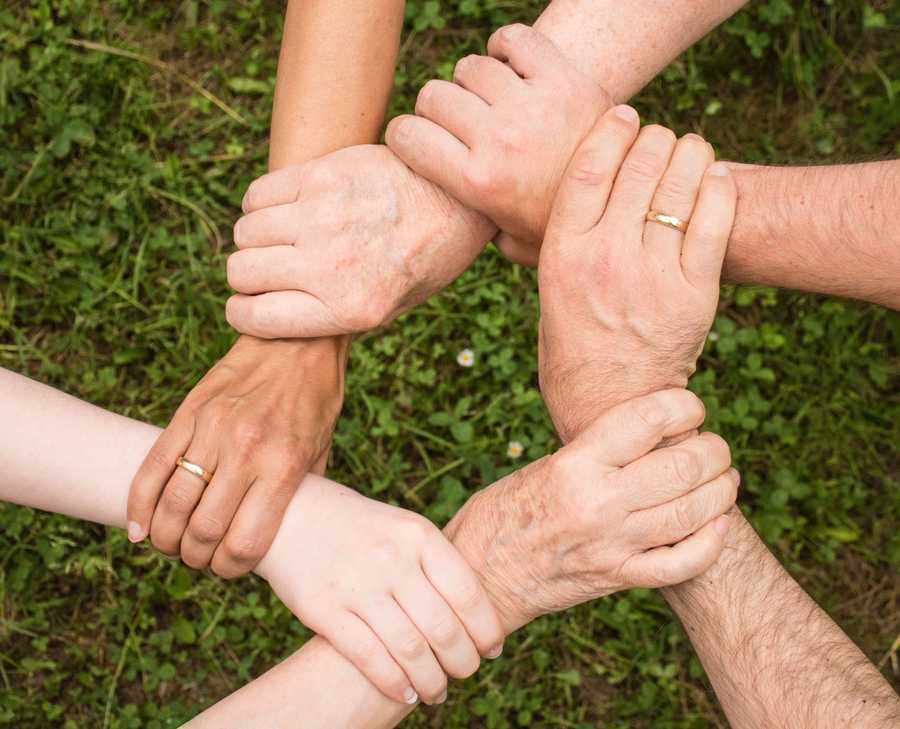The Emotional Burden of Dementia & The Benefits of Community
by Amylee Amos PhD, RDN, IFMCPNews
The emotional burden of Alzheimer’s disease and dementia is often overlooked. All too often, the media focuses on the exorbitant financial burden of Alzheimer’s both on the individual family and on the healthcare system in general because those numbers are so staggering, they’re sure to make a headline. The emotional burden of the disease is quieter, less flashy, but equally if not even more oppressive.
The Emotional Toll of Alzheimer’s Disease
Alzheimer’s disease takes a massive emotional toll on both the individual suffering from the diagnosis and on their loved ones. A diagnosis of Alzheimer’s disease, or even mild cognitive impairment can paralyze an entire family. There are so many questions and so few definitive answers. Informal caregivers of individuals with Alzheimer’s disease and dementia, such as a spouse or adult child, face health implications of their own. Alzheimer’s caregivers have been found to have higher rates of depression, elevated blood pressure, elevated lipid levels, and impaired immune function (1). This is one reason why we encourage the whole family to follow our Cognitive Health Program- the changes to diet and lifestyle will help many other conditions as well!
Throughout the years, we have had clients and caregivers of clients who have sought out support and community connection through local Alzheimer’s disease support groups for help in dealing with this emotional burden. Research shows that individuals facing this diagnosis and their caregivers who feel supported have less incidence of adverse health outcomes, including depression (2). Unfortunately, what sounded like such a wonderful resource, often turned into a nightmare for these clients. We have heard reports that when our clients opened up to their support group about the Bredesen Protocol and the program they had embarked on to reverse cognitive decline and regain good cognitive health, they were met with rolling of eyes, condescension, and in some cases downright anger as other group members and even group leaders bullied them and berated them with the same outdated science that there is ‘no cure and no way to reverse Alzheimer’s disease.’ Not very supportive for a support group, but unfortunately, this will always be the case when these types of groups are either directly or indirectly funded by the very people who profit from the perpetuation of this lie. The big pharmaceutical companies benefit from the myth that there is no way to prevent or reverse Alzheimer’s disease. It keeps millions of people on their prescription medications. And they have the billions of dollars to contribute to organizations that at first glance appear to be trying to help people suffering from this terrible disease.
Amos Institute Office Hours
We at the Amos Institute saw a unique need for those suffering from or at risk of Alzheimer’s disease and their families. The benefits of community support are indisputable, but seem unsuitable for anyone going against the unfounded, outdated and supposed “gold standard” of treatment (which is, to do nothing except take some medications and then wait to get slowly worse until you die). We needed a form of community support for individuals who chose to take their health into their own hands and do everything possible to prevent and reverse their cognitive decline. To fill this need, we created our weekly Office Hours.
Office Hours are a chance for our community of proactive, dedicated, and hard working individuals to connect. Throughout the week, participants of our Cognitive Health Program write in questions about the implementation of the many nutrition and lifestyle changes that they need to make on the Bredesen Protocol, they write in successes and challenges that they have had throughout the week, they write in to share recipes and products that meet the nutritional parameters of their nutrition plan, and they share words of encouragement to one another. During our weekly Office Hours session, our Amos Institute practitioner shares all of the entries that we’ve had from our community over the week. Participants listening in can hear their questions answered, as well as hear about the goings on of the rest of our community. Our participants get to connect with a community of people all in the same situation that they are in, and they do this all from the privacy and comfort of their home.
Community support such as this has been shown in the research to be beneficial for individuals with and at risk of cognitive decline, as well as their caregivers because it provides a unique level of social connectivity, while maintaining anonymity. In other words, the Office Hours model allows you to connect with and seek support from other people undergoing similar challenges and struggles that you face, all while protecting your confidentiality and allowing you to connect regardless of your time zone or personal schedule.
If you feel that you would benefit from the support and connectivity from our Amos Institute community, join our Cognitive Health Program today.
References:
- Burns, A. (2000) The burden of Alzheimer's disease. International Journal of Neuropsychopharmacology, 3(2), S31–S38.
- Mittelman, M.S., Roth, D.L., Coon, D.W., & Haley, W.E. (2004). Sustained Benefit of Supportive Intervention for Depressive Symptoms in Caregivers of Patients With Alzheimer’s Disease. American Journal of Psychiatry, 161(5), 850-856.
- Colvin, J., Chenoweth, L., Bold, M. & Harding, C. (2004), Caregivers of Older Adults: Advantages and Disadvantages of Internet‐based Social Support. Family Relations, 53: 49-57.